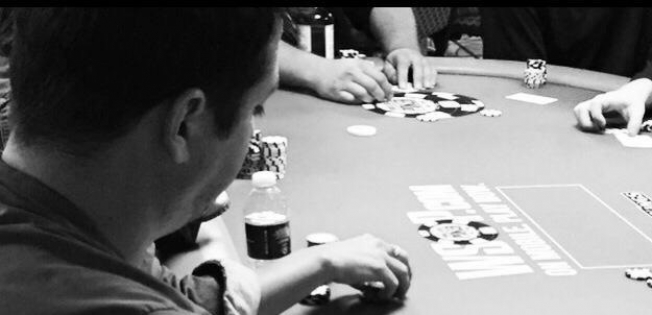Can Play Money Games Prepare You for Real Money Poker
1 year ago

07 Dec
The transition from play money games to real money poker can be a harrowing journey for many players. This progression raises questions about the effectiveness of play money experiences in preparing players for the real stakes of poker. Analyzing the skills, strategies, and psychological aspects involved in this shift provides insights into the complexities of poker as both a game and a form of gambling.
Understanding Play Money Poker
Play money poker games offer a platform where players can experience the game without the risk of losing real money. These games replicate the mechanics and rules of poker, allowing beginners to familiarize themselves with various hand rankings, betting structures, and game dynamics. In play money poker, participants can learn how to read the board, calculate odds, and understand the importance of position in gameplay. It serves as a controlled environment where novice players can practice different strategies, from conservative to aggressive play, and observe their outcomes.
Transitioning to Real Money Poker
Transitioning from play money to real money poker involves significant changes, particularly in player behavior and game strategy. Real money games typically feature more skilled opponents who employ advanced strategies and are less likely to make reckless moves. The psychological aspect also changes; players may experience heightened emotions due to the real stakes involved. This shift requires a more disciplined approach to bankroll management and decision-making. Players need to adapt their strategies to counter more sophisticated opponents and manage their funds effectively to stay in the game.
Skill Development in Play Money Games
Skill development is a key aspect of play money poker. Players can hone their ability to calculate pot odds, read opponents, and develop strategic thinking without financial risk. This practice ground allows for experimentation with different styles of play, such as tight-aggressive or loose-passive, and understanding their effectiveness. However, the skills developed in play money games may not fully translate to real money games, where the dynamics are more complex and the competition is stiffer.
Psychological Elements of Poker
The psychological elements of poker play a critical role, especially in real money games. While play money games can help in understanding basic human tendencies in poker, they often lack the intensity and seriousness found in real money games. Real money poker tests a player's emotional control, patience, and ability to handle pressure. These psychological skills are often developed through experience in real-money situations rather than play money games.
Managing Finances in Real Money Poker
One of the biggest differences between play money and real money poker is the need for effective bankroll management. Real money poker requires careful planning and discipline to manage finances. Players need to set limits, choose the right stakes for their skill level and bankroll, and avoid chasing losses. This financial discipline is something that play money games cannot teach, as the virtual chips have no real-world value.Differences in Opponent Behavior
In real money poker, player behavior and strategy differ significantly from play money games. Players tend to be more cautious, value their chip stacks more, and employ more nuanced strategies. Bluffing and reading bluffs become more intricate, and understanding these subtleties is required for success. The competitive environment in real money games is more intense, demanding a deeper understanding of the game and higher-level strategic thinking.
Making the Switch: Preparing for Real Money Games
For players transitioning from play money to real money poker, preparation is key. It is advisable to start at lower stakes and gradually move up as skills and confidence grow. This gradual approach helps in adapting to the different dynamics of real money games without overwhelming financial risk. Additionally, studying advanced poker strategies, reviewing game histories, and learning from mistakes are essential steps in this transition.
Exploring Other Real Money Casino Games
Many players who enjoy poker also explore other casino games. Many people prefer online slots that pay real money, which offer a different kind of entertainment. While these games rely more on chance than skill, they provide a variety of themes and gameplay experiences. Understanding the differences between skill-based games like poker and chance-based games like slots can enhance a player's overall gaming experience.
Conclusion
In conclusion, while play money poker games serve as a valuable learning tool for beginners, they have limitations in preparing players for the complexities of real money poker. The transition involves:
• Adapting to more skilled opponents.
• Managing emotions and finances effectively.
• Understanding the intricacies of advanced poker strategies.
As players move to real money games, they should do so with caution, patience, and a willingness to learn from each experience. Additionally, exploring other real money casino games can offer a broader perspective on the world of online gaming.







Comments
You need to be logged in to post a new comment